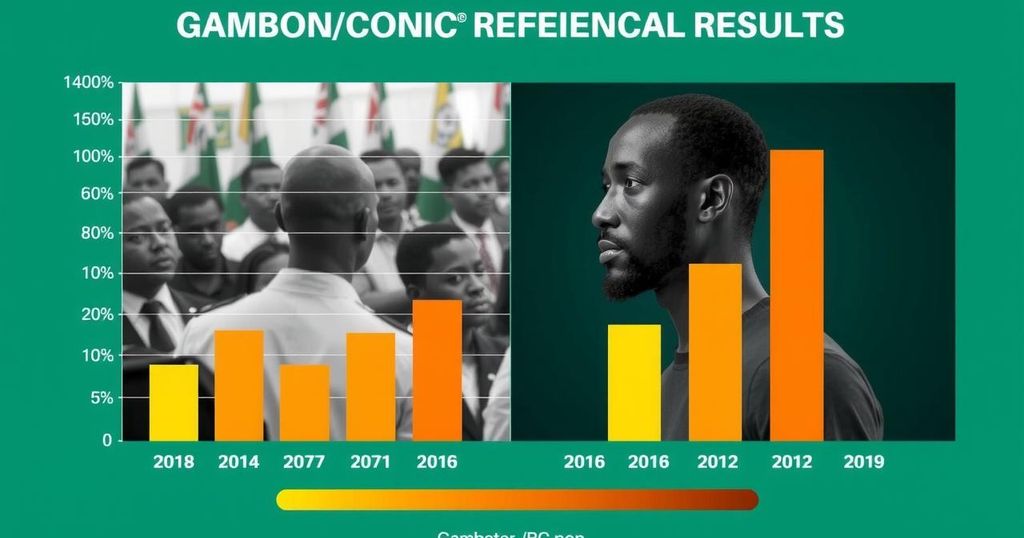Gabonese Voters Overwhelmingly Approve New Constitution in Recent Referendum

Provisional results from Gabon’s recent referendum reveal that 91.8 percent of voters support a new constitution amid increased governmental propaganda. It introduces term limits and disqualifies potential candidates associated with dynastic rule. Turnout was reported at 53.54 percent. Critics express concerns about authoritarianism, while public sentiment suggests an optimistic view of the nation’s direction.
In Gabon, provisional referendum results indicate that a new constitution has received overwhelming approval, with 91.8 percent of voters supporting it. This development marks a significant moment in the history of this oil-rich nation, which is currently under military rule following a coup last year. Approximately 860,000 registered voters were encouraged to participate amid a firm campaign led by authorities across various media platforms. While the turnout was reported at 53.54 percent, it was lower than anticipated.
The new constitution introduces key changes, including limiting the presidency to two seven-year terms and preventing the transfer of power through dynastic means. Moreover, it stipulates that presidential candidates must be solely Gabonese, thus disqualifying former leader Ali Bongo Ondimba and his descendants. Transitional President Brice Oligui Nguema described the referendum as a “great step forward” for the country. He, however, intends to seek the presidency in the upcoming elections in 2025.
Despite the support for the proposed constitutional changes, skeptics warn that the restructuring may pave the way for autocratic rule. Critics argue that the constitution appears custom-designed to consolidate power for Oligui. Voter sentiments reveal optimism about national direction, although issues such as unemployment, healthcare, and living costs remain pressing concerns. The final results are yet to be confirmed by the constitutional court, following international observers’ absence during the recent presidential election.
The recent referendum in Gabon emerges from a backdrop of military upheaval and a contentious political landscape. After the coup in August 2022, which ousted Ali Bongo Ondimba, the military junta has sought to establish a new constitutional framework. The proposed constitution aims to address governance issues and prevent dynastic succession, a significant concern in a nation long influenced by familial power dynamics. The impetus for the referendum reflects the junta’s broader agenda to transition back to civilian rule while simultaneously consolidating its power.
In conclusion, the referendum in Gabon represents a critical juncture for the nation, suggesting a shift towards a new governance structure while also raising concerns about potential authoritarianism. Voter participation reflects a desire for change, yet skepticism regarding the sincerity of reforms persists. As the transitional government prepares for future elections, the path toward a stable and democratic Gabon remains uncertain, highlighting the delicate balance between reform and legacy in the country.
Original Source: www.tiogapublishing.com







